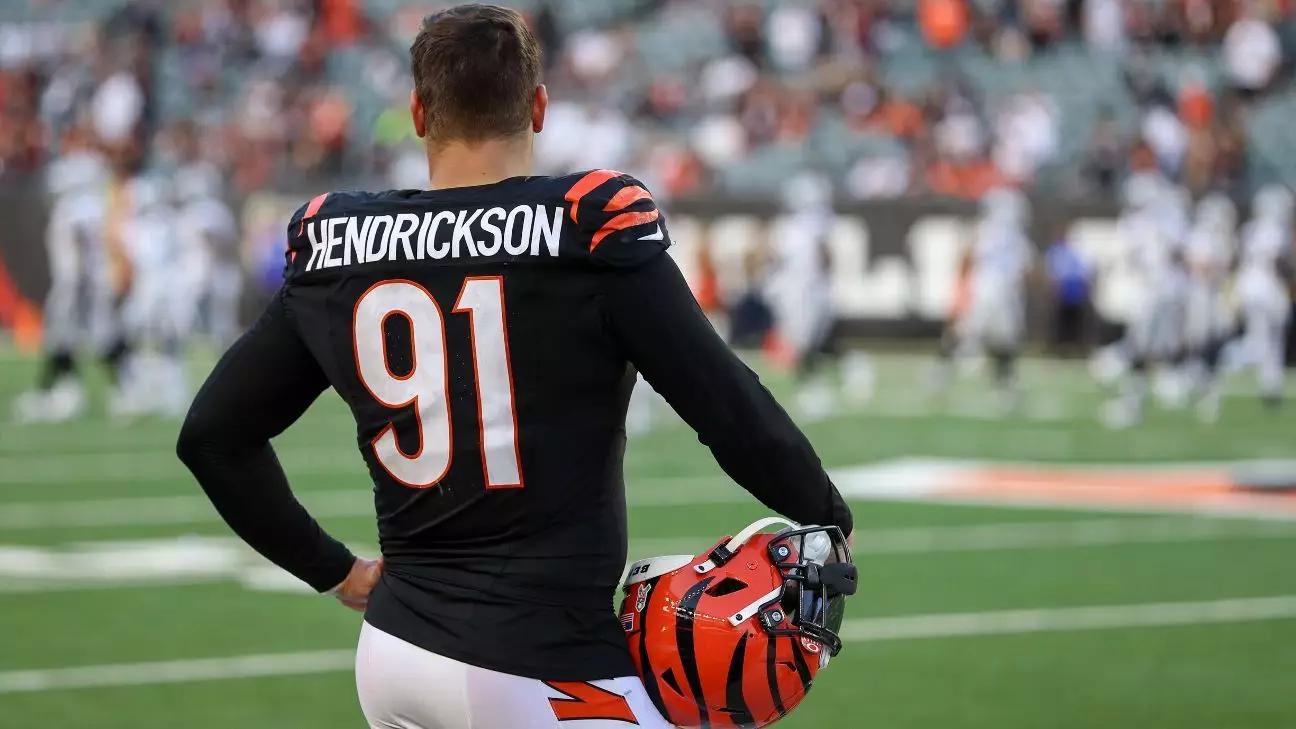In the high-stakes world of NFL football, players often find themselves caught between the adrenaline of competition and the practicalities of financial security. Trey Hendrickson, a formidable defensive end for the Cincinnati Bengals, embodies this tension as he stands firm on not participating in the upcoming season. His stance is rooted not in a lack of dedication or desire to compete but in a desire for tangible security—an often overlooked facet of professional athletics. Hendrickson’s refusal to practice or play, despite having a contract, reveals a profound struggle that transcends the gridiron: the quest for equity, stability, and respect in a system that can undervalue its players outside of their on-field achievements.
The core of Hendrickson’s dispute hinges on guaranteed money—a financial assurance many athletes view as fundamental to their livelihood. For Hendrickson, the negotiation isn’t merely about dollars but about dignity and long-term stability. His readiness to sit out highlights a critical flaw in NFL contracts: the disparity between performance-based pay and guaranteed compensation. This situation spotlights how athletes often feel exposed and vulnerable, despite being among the most physically resilient and dedicated individuals in the sport.
The Cost of Success and Undermined Trust
Hendrickson’s breakout season, where he led the NFL with 17.5 sacks, amplifies his case. Achieving such heights on the field should bolster an athlete’s leverage, yet it appears to have had the opposite effect in negotiations. Instead of recognition, Hendrickson faces a system that seems reluctant to fully secure his future. The Bengals’ stance on not providing guaranteed salaries after the first year signifies a deeper issue: the imbalance of power between players and management. His intention to explore other opportunities, granted upfront, underlines a sense of frustration—a feeling that his contributions are not met with reciprocal respect.
From a broader perspective, Hendrickson’s silence during the offseason and heretofore limited public comments signal a calculated effort to emphasize his seriousness. His recent declaration that “recognition’s not something I’m chasing” underscores a shift from seeking fame to safeguarding his livelihood. This perspective is refreshing; it highlights that, behind the bravado and constant media spectacle, NFL players are primarily concerned with their families’ futures. Hendrickson, like many athletes, is fighting for security in a system that often prioritizes short-term gains over long-term welfare.
What This Means for the Future of Player Rights
His stance challenges NFL franchises and management to rethink how they treat their star players, especially as contracts grow more lucrative and yet remain riddled with loopholes. Hendrickson’s case symbolizes a larger movement pushing for guaranteed contracts—a battle that could reshape the league’s financial landscape. Players are increasingly aware of their value beyond the field, and Hendrickson’s firmness may inspire others to demand similar protections.
Ultimately, Hendrickson’s resistance is an act of courage—an assertion that athletic excellence must be paired with fairness. The NFL has long wrestled with the conflicting interests of profit-driven management and player welfare. As he stands his ground, Hendrickson reminds both fans and executives that behind every sack and highlight reel is an individual striving not merely to succeed but to secure a future worth fighting for. His story invites a critical reevaluation of how the league compensates its heroes—recognizing that loyalty and sacrifice should not be commodified without guarantee.


Leave a Reply